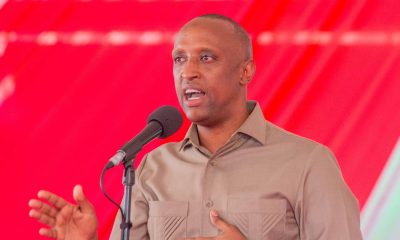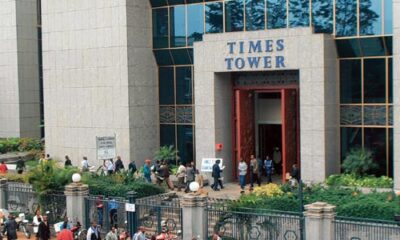The Kenya Revenue Authority (KRA) is pressuring landlords to raise rents for their properties, which is likely to add another financial burden to already financially struggling tenants.
Last month, the Authority sent out notices to property owners expressing concerns over the constant figures declared as rental income, asking them to adjust the amount to reflect market changes.
“The commissioner has noted that your rental income has been a constant figure or has slightly declined for the period filed,” read one of the notices.
“We understand that rent is an appreciating commodity with economic times, and we expect your declarations for the current month will reflect that. If needed, previous return declarations can be amended. Filing Nil or a decline in rental income is highly discouraged.”
Many landlords were shocked by the notices, especially considering that declines in declared rental income often coincide with vacancies, presenting a challenging situation for property owners as their tenants are likely to move to cheaper houses as soon as rents are raised.
Property owners were expected to pay monthly rental income tax at the rate of 7.5% of the gross rent they collect from tenants starting in January. This rate is slightly lower than the previous 10%.
The rental income tax is applicable for landlords earning annual rental income between Sh280,000 and Sh15 million, equivalent to at least Sh23,333 per month.
Real estate analysts have criticised the directive, stating that raising rents for residential houses is challenging due to the absence of binding tenancy agreements in most leases, and many tenants may quickly move houses when rents are hiked.
“What happens is that rental income in a residential area increases when you have a vacancy,” Johnson Denge, a real estate expert, told the Business Daily.
This was corroborated by a landlord, who stated that he is only able to raise rents when somebody new moves into his house.
“The rental income goes up when I get a new tenant, but not when they have been there for a long time. Getting a constant tenant is not easy, so I do not raise their rents,” said the unnamed property owner.
“In the estate where I have my flats, there is a glut of flats, so rent is a constant figure. If you are the only landlord raising rent, you will automatically transfer your tenants to other properties.”
Meanwhile, KRA has also issued notices to property owners asking them to pay a 1.5% levy on the rent received as an affordable housing levy. In the advisory issued earlier this week, the KRA clarified that property owners will pay 1.5% of the rent received and not the net of the landlord’s incomes after deducting expenses like mortgages and property management fees.
Small businesses, whose annual sales range between Sh1 million and Sh25 million, are also required to pay the levy from their gross sales and not operating profits – a move that is likely to pile pressure on microenterprises such as barbershops and beauty salons.
Kenya Insights allows guest blogging, if you want to be published on Kenya’s most authoritative and accurate blog, have an expose, news TIPS, story angles, human interest stories, drop us an email on [email protected] or via Telegram

 Investigations6 days ago
Investigations6 days ago
 Grapevine2 weeks ago
Grapevine2 weeks ago
 News2 weeks ago
News2 weeks ago
 Opinion2 weeks ago
Opinion2 weeks ago
 Americas6 days ago
Americas6 days ago
 News1 week ago
News1 week ago
 Politics2 days ago
Politics2 days ago
 News6 days ago
News6 days ago































